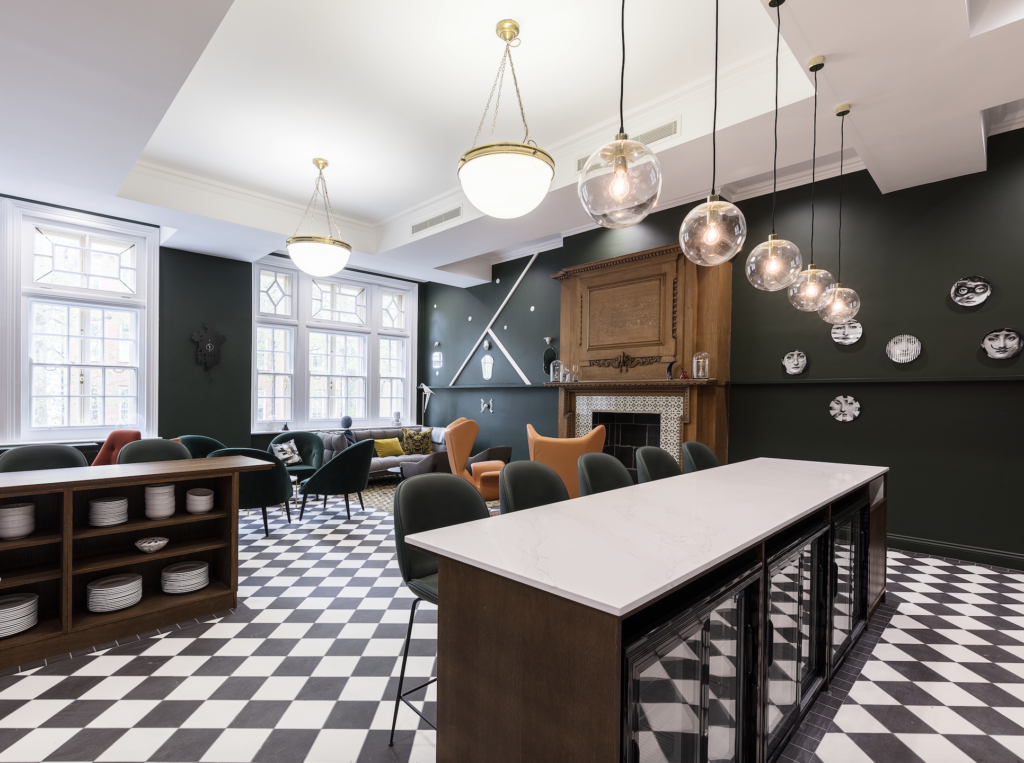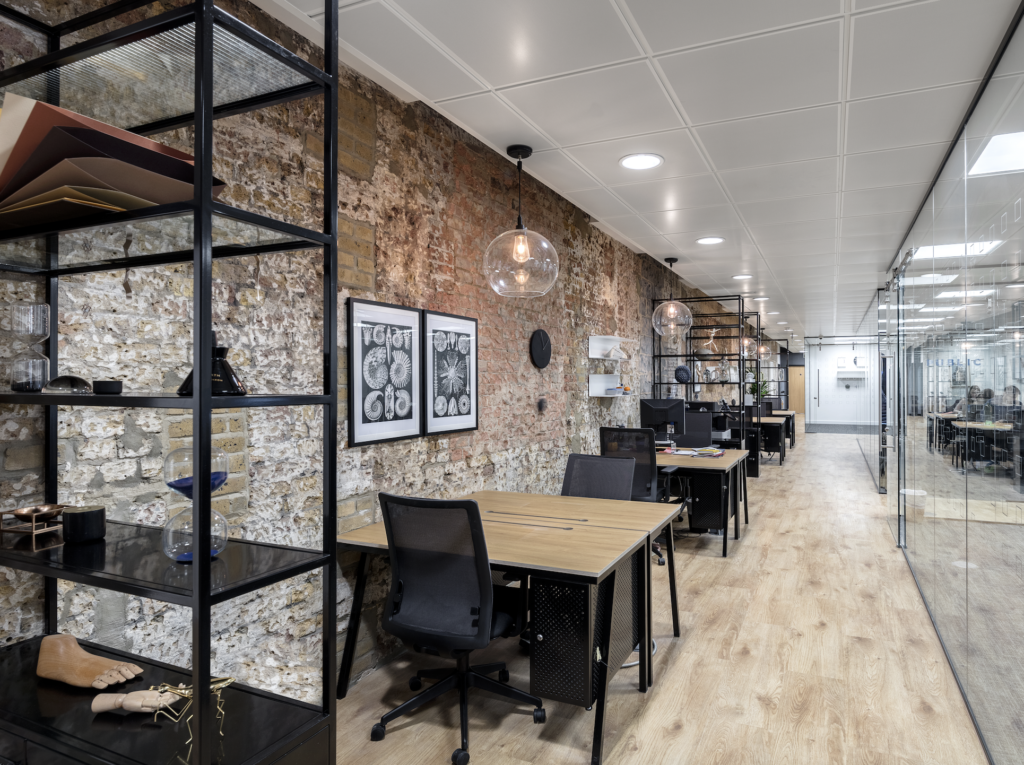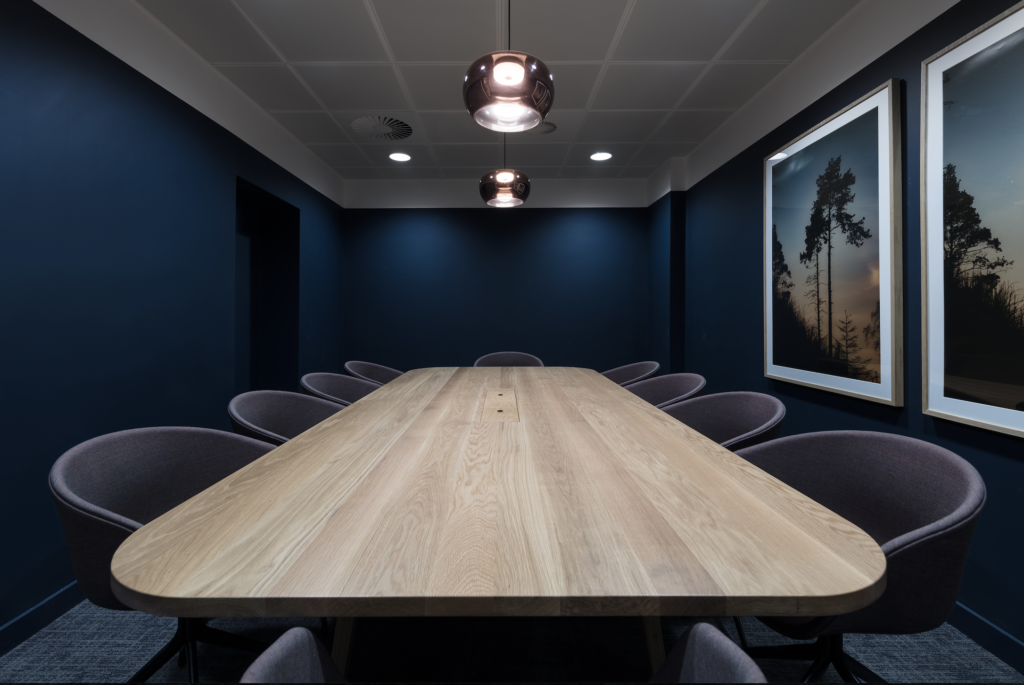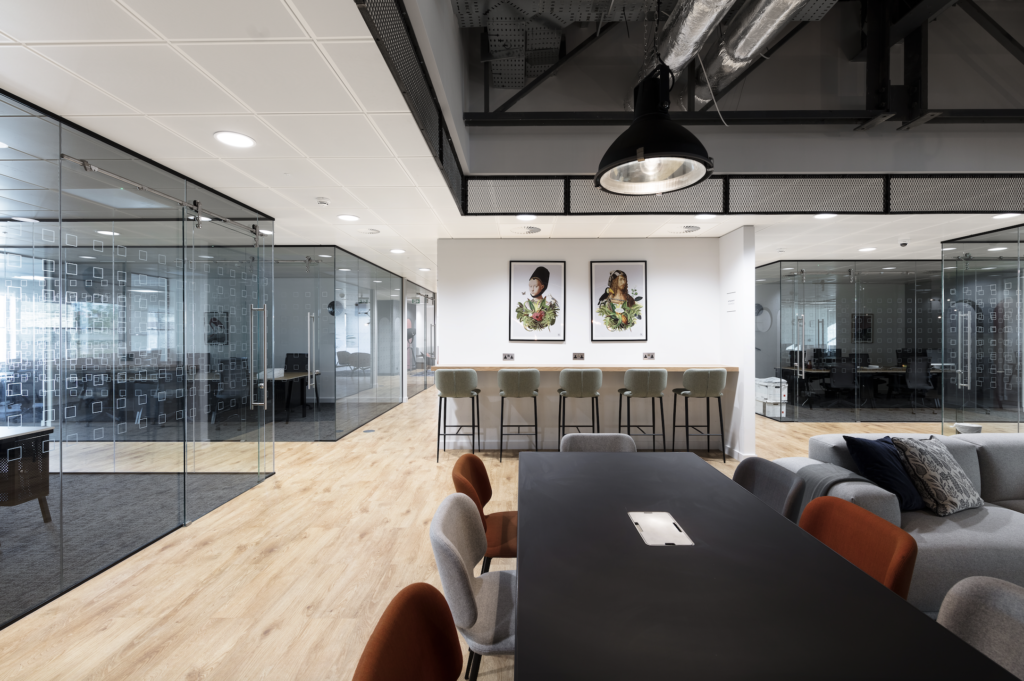
by Cat Johnson
With 11 workspace locations and several more in the pipeline, Central Working CEO Grant Powell is a leader in the London workspace sector. Powell is also an advocate for new operators entering the market with caution, and existing operators to band together and start acting like an industry.
I chatted with Powell about the “frothy” London workspace market, the fact that the lease is dead, and the necessity of workspace operators–and the industry at large—focusing on the customer. Here are the highlights of our conversation.
Cat Johnson: How do you advise people who are just entering the booming workspace industry, especially in London, where there’s increasing competition.
Grant Powell: If you’re coming in now, I suggest you exercise with caution. Especially in London, the market is probably at the frothy levels. There are so many new entrants coming in because the barrier to entry is quite low. People think the can take a lease, put it with some desks, call it coworking and hope for the best.
 The wider picture is that leasing is dying. No one signs a lease anymore. They’re just not fit for purpose. You’ve got to sign a minimum three-year or five-year term, put all the cash on a 12-month rent deposit down, then worry about internet, cleaning, rates, rents, service charge, all of those things. That’s why there’s this massive rush, and that’s why the giants are now coming into the space. Most of the big companies now realize that flexible is important and are launching their own brands.
The wider picture is that leasing is dying. No one signs a lease anymore. They’re just not fit for purpose. You’ve got to sign a minimum three-year or five-year term, put all the cash on a 12-month rent deposit down, then worry about internet, cleaning, rates, rents, service charge, all of those things. That’s why there’s this massive rush, and that’s why the giants are now coming into the space. Most of the big companies now realize that flexible is important and are launching their own brands.
We’re at a point where the market, off the back of the IPO for WeWork, probably needs to have some consolidation and maybe a little contraction, then it will find its next wave of growth. There are so many entrants in the market right now. With lots of focus on guest price and pressure, new entrants need to be cautious entering into a niche in the market.
We’re definitely seeing more consolidation, industry-wide. What do you think that means for space operators and the industry at large?
I think it’s a good thing. With consolidation in any sector, everything has to grow and contract. It grows and contracts over the course of time and things move forward. Our sector, if we gauge when WeWork came into the space, is 10 years old. The industry is in its infancy. It’s only going to stay, and it’s only going to grow bigger, but we, as an industry, need to realize that we are one now–we’re not just this thing over there called coworking. We are here to stay.
Very much like what happened in the hotel space—it found its own market: two star, three star, four star, five star, boutique. That made it easy for the customer to decide where they want to stay. Our industry hasn’t quite caught up to that yet.
At the moment, it’s really confusing for a customer to come in with all this choice. I think we have to stop, pause and rethink a little bit about what we need to do. As an industry, we need to look at benchmarking, we need to look at differentiation, we need to make it easy for the customer to make choices. That’s where consolidation is going to be a good thing.

On one hand, you give warning to new space operators to tread carefully, but we’re also talking about plenty of room for industry growth. So, you see the growth, not with more one-off spaces, but with brand consolidation and clarifying the options for customers.
If you’re a new entrant, I’m not deterring you from coming into the market—I think it’s awesome. But if you are coming into the market, really decide with a lot of configured thought, what makes you different and what niche you’re going to fit into. Then execute on that really well.
At the moment—especially with all the geopolitical environment—people don’t really have to think too much about where they spend their money. We’re doing okay, people are moving to flexible and evacuating themselves from leases. But the moment there’s a downturn, or a contraction, people start to think about where they spend their money.
At that juncture point, that’s where those who are really smart around creating a product and a service and have something that can really back it up will do well; and that’s where those who haven’t thought about that will either get consolidated or will fail. It’s an interesting point. But by all means, I’m positive about the sector and am super-excited to see where it’s going to grow. It’s still in its infancy.

The differentiation piece is so important. I spoke with Chris Davies from Uncommon recently, and we spent a lot of time talking about differentiation. He stressed that you have to be willing to not appeal to some people—that you really have to embrace that. It used to be that if a town had a coworking space, it was newsworthy. Now, people in big cities have hundreds of spaces to choose from. Do you have any differentiation tips for new operators?
Look to other industries and how they’ve done that successfully. You can learn externally. Look at the coffee sector. Look at all the brands in that space. There’s room for everyone, but why do certain customers choose one? Why does someone go to a Starbucks versus a boutique? Why does someone go to Costa versus a bigger chain?
My advice is to look at other industries because there are most certainly examples there. Especially for what is a new industry, it requires that industry leaders to get together and not be frightened of sharing knowledge. Sit down together, share that data, share that information. That’s where you really start to see the rubber hits the road of growth.
I’m a massive proponent of looking at benchmarking, getting us around a table, talking about what our industry needs, determining the governing bodies and what they’re doing to support the industry, discussing how we can help early entrants and how we can help the big ones. We need to get those conversations going. Initially, they’re hard to do, but if we can start to do that, the person that benefits is the end user, which is our customer. You always have to have that in mind. I don’t think, as an industry, we talk about the customer enough. It has to be all about the customer and how we make it easier for the customer to make their choices.

That conversation about focusing on the customer, is starting to surface more. And you’re right, it feels like a new conversation.
Absolutely. And it’s because those early adopters saw that there was something there. If you rewind, I don’t think everyone saw that this would massively challenge the leasing market, which it’s starting to do. People want the flexibility of coming into coworking, without the stress and pressure and legal hassle of leases.
I think we are on the cusp of something that is only here to stay. That’s why you see even the big hotel groups looking now at investing in this space. We operate in two hotels that have taken all the meeting and event and restaurant space and moved it over to cafe space and coworking. Other industries are starting to look at our sector because we have a higher density.

As far as expansion for existing operators, at what point do you think they should start thinking about expanding to a second location, or maybe their fifth location?
There’s room for everyone, if you’ve opened one and it’s successful, with good cash flows and investors who can back you to grow into two. Once you’ve hit three or four, you’ve kind of figured it out. You’ve realized that it has to be systematized, you’ve got to have a process. You’re clearly successful enough to attract customers. There must be some reason they’re there, so you have an idea of brand. Then, it’s just growing from that. Once you get to 10 and above, you’ll really start to be quite a mature business. You should be cash flow positive, you should be eyeing other expansion.
There are lots of operators, like us, who are at that 9 or 10 year junction. It is a very interesting time. But I do say it with a level of caution. WeWork is doing what Amazon did to the High Street: challenging a model. Those who don’t adapt don’t survive. That’s why you have to put the customer at the forefront and have your brand stand for something different. WeWork can afford to seemingly give lower prices. They can ride that storm because they’re financially backed. Smaller operators have to realize that it’s not just a bunch of desks, call it community, and hope for the best. That’s a message that I think needs to be driven home.

What challenges lie ahead for this industry and what would you like to see?
I’m a massive believer in benchmarking. The hotel sector does this very well. That helps you with realism. Am I charging the right price? Have I chosen the right competitor set? Do I compare myself appropriately to others in the marketplace? When you have benchmarking, you’re able to assess whether you’re doing good or not doing good. If you’re not, then why, and change it.
At the moment, everyone is driving a bit blind. You think you might be doing well, but how do you really know? Are people in the sector really honest? Everyone says they’re full, at 100 percent occupancy. Is that true? If it’s not true, why do we perpetuate false truth? It doesn’t really benefit anyone. That’s why we must now have the uncomfortable conversation about the fact that we’re an industry, so we should start to behave like one.
The Global Coworking Unconference Conference (GCUC) comes to London 23-24 September. Reserve your GCUC UK tickets now to learn more about the booming workspace sector and connect with its key players.
[ssba-buttons]
